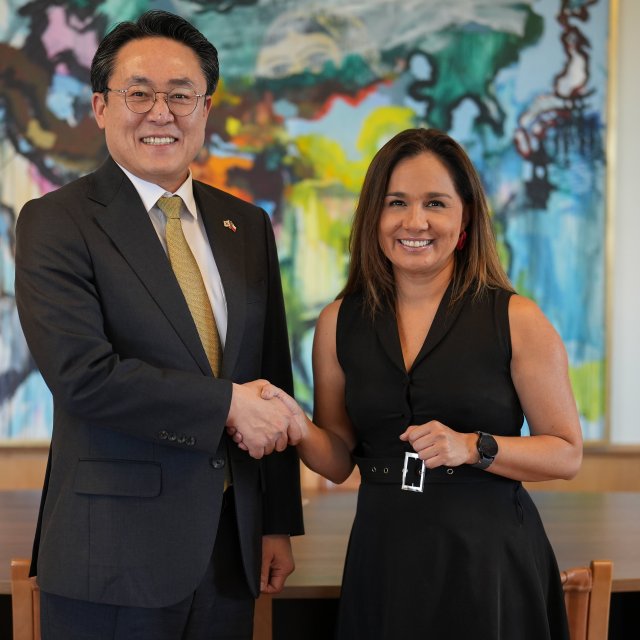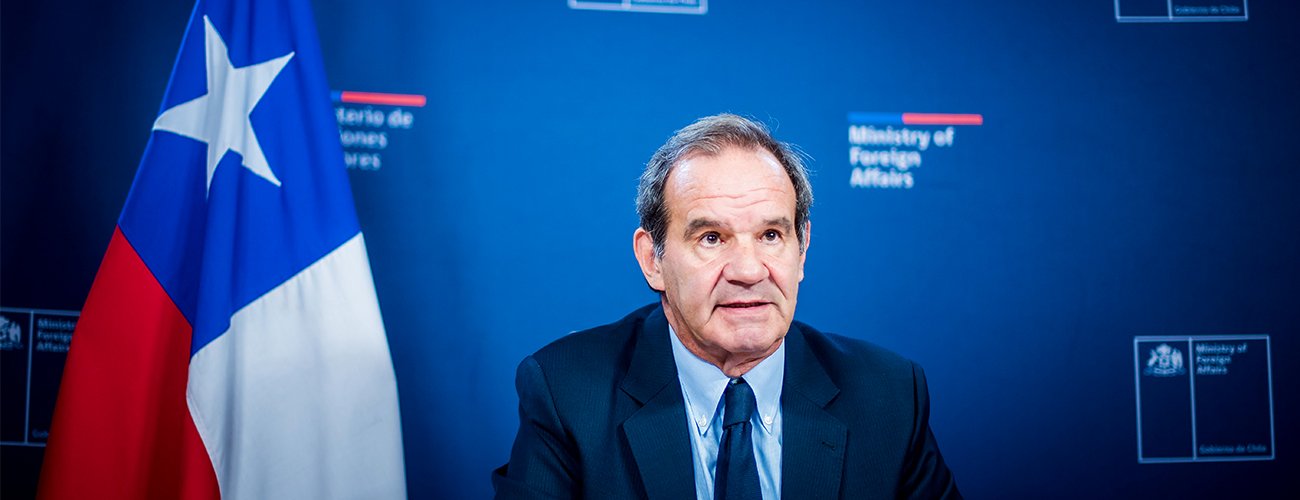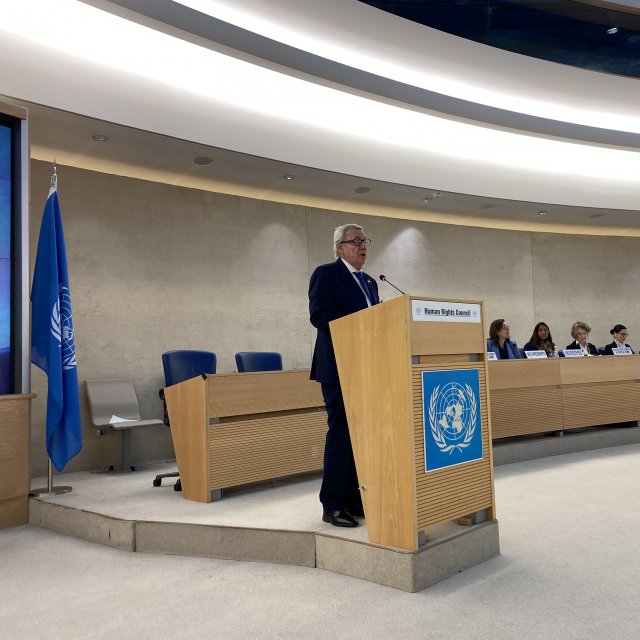 Thursday, February 27th 2025
Undersecretary meets with the Minister of Oceans and Fisheries of the Republic of Korea
Thursday, February 27th 2025
Undersecretary meets with the Minister of Oceans and Fisheries of the Republic of Korea
Minister Allamand urges the establishment of a strong multilateral mechanism for global public health

Latin America has been one of the regions that have suffered the highest mortality rate due to Covid-19. This, added to the economic and social crisis, has unleashed serious consequences for the region and the world.
In this context, today, Foreign Minister Andrés Allamand participated in a ministerial meeting called by the US Secretary of State, Antony Blinken, to discuss the challenges facing the international community in the face of the pandemic.
Minister Allamand highlighted the role that the scientific community has had in the rapid response to the crisis, however, he stressed the insufficiency of the current multilateral system. "Despite global efforts - such as COVAX - there is still much to do to achieve a solid health infrastructure to face future crises."
"We need to look to stronger global mechanisms that foster cooperation and ensure that all countries can access vaccines beyond their level of economic development," he added.
In April 2020, Chile presented a multilateral initiative to generate an instrument to address the preparation and response to future pandemics. Today, 40 countries from different regions are working to generate consensus at the next special meeting of the World Health Assembly and thus strengthen the global health architecture.
In this sense, Foreign Minister Allamand urged to continue advancing in a legally binding treaty with a political dimension that allows the negotiation of additional protocols in which the States can adhere according to their realities.
"A new multilateral agreement could establish a permanent forum for high-level political dialogue that is not limited to technical issues," he noted.
Likewise, he recognized the role that cooperation has had in this scenario, where the medical supply chain has been essential to provide access to vaccines to combat Covid-19.
"We invite all countries to be part of this process to ensure that we will be better prepared in the future to provide the best possible response to the next pandemics," he concluded.
Related articles
 Thursday, February 27th 2025
Undersecretary meets with the Minister of Oceans and Fisheries of the Republic of Korea
Thursday, February 27th 2025
Undersecretary meets with the Minister of Oceans and Fisheries of the Republic of Korea
 Monday, February 24th 2025
Minister van Klaveren reaffirms Chile's commitment to human rights and gender equality
Monday, February 24th 2025
Minister van Klaveren reaffirms Chile's commitment to human rights and gender equality









